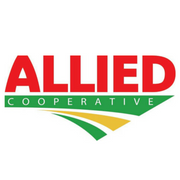
The farming industry is the backbone of society, providing food, fuel, textiles, even medicine for our community. Like any field, it is ever-evolving and adapting to face the challenges of a growing global population and the issue of climate change. In pursuit of sustainable farming practices grew the field of agronomy—a vital tool to farmers everywhere to manage their business on a long-term scale.
The Importance of Agronomy
Agronomy Defined
Agronomy is the study of how to effectively cultivate crops—particularly crops that require vast acreage to produce—in a profitable yet sustainable way. Agronomists come from a variety of applied plant science, biology, and economics-based backgrounds because crop production requires consideration and integration of thought from numerous fields. They conduct studies that look at crop production from a holistic perspective to inform the agriculture trade of best practices to promote sustainability within the industry.
Agronomists need to consider factors like climate, soil, and water availability; crop genetics and how they grow and develop in different environments; how best to manage pests, weeds, and other environmental factors; and industry economic trends to help ward off overproduction. They act as consultants to farmers to guide their crop production on a long-term, global scale.
The Importance of the Field
 With an ever-growing global population, it is more important than ever to manage and conserve our resources by continuing to evolve our crop practices. Agronomists study global concerns like food and water security, air quality, climate change, and soil and water conservation to help guide the agriculture industry towards more eco-friendly farming. With this research, they develop farming practices and technology that aims to help crops grow higher yields more sustainably while simultaneously protecting the environment.
With an ever-growing global population, it is more important than ever to manage and conserve our resources by continuing to evolve our crop practices. Agronomists study global concerns like food and water security, air quality, climate change, and soil and water conservation to help guide the agriculture industry towards more eco-friendly farming. With this research, they develop farming practices and technology that aims to help crops grow higher yields more sustainably while simultaneously protecting the environment.
The Implementation of Agronomy
Agronomists work with farmers to strategize what crop practices and products work best to fulfill this sustainable mission. They are educators and advisors to the industry that help implement the latest methods for crop production. Often, agronomists will conduct soil sampling at farms and apply agronomic services that best suit the fields in question. They can recommend and sell farmers fertilizers, nutrient management plans, even the seeds themselves to see through the specific needs of their client.
Farmers depend on agronomy services and support to ensure effective yields of their crops. Since 1917, Allied Cooperative has made it their mission to provide for farms throughout West and Central Wisconsin. A co-op originally founded by farmers, they understand the needs of this industry and act as a resource for farming products as well as consultants for strong farming practices. To learn how Allied Cooperative can help your farm overcome its biggest challenges, visit their website or call (800) 247-5679.
About the Business
Have a question? Ask the experts!
Send your question

